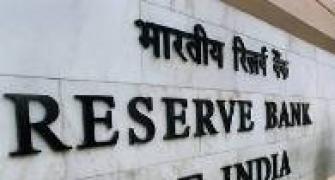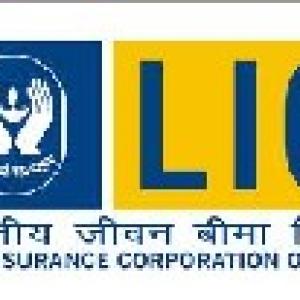 Among the major recommendation, the non-life insurance sector has demanded the waiver of service tax on insurance premium and also substantial increase in tax deduction limit under section 80D for mediclaim policies.
Among the major recommendation, the non-life insurance sector has demanded the waiver of service tax on insurance premium and also substantial increase in tax deduction limit under section 80D for mediclaim policies.Alternatively, they should at least exempt health insurance products and the Government sponsored health schemes from the purview of service tax.
General insurance sector has also demanded exemption from MAT, claming that they do not enjoy any tax incentives.
In order to encourage general insurance players to be active participants in the capital markets, non-life sector has urged for specific exemption from income tax on profit on sale of investments.
Payments related to reinsurance premium made to non residents are also demanded to be exempted from tax deduction at source under Section 195.
The company-wise budget expectations are as follows:
Ajay Bimbhet, Managing Director, Royal Sundaram Alliance Insurance Company
i) Increase FDI limit from the current 26 per cent to 49 per cent: Commensurate with the growth in business of insurance companies, the capital requirements have been increasing.
Infusion of additional capital from foreign partners can fuel the growth of these companies, help them in further geographical expansion to more tier II and tier III cities and also cater to the requirements of rural markets.
ii) Waive Service Tax: Considering the abysmally low penetration of insurance, there needs to be a concerted effort to make insurance all the more affordable and an attractive proposition for the common man.
Clearly, abolition of the service tax will enable this process. Alternatively, they should at least exempt health insurance products and the government sponsored health schemes from the purview of service tax.
iii) Reinsurance payments not to be liable for tax deduction at source: The budget should pave the way for Central Board of Direct Taxes to issue appropriate circulars clarifying that payments to Reinsurers would not be liable to tax deduction at source.
iv) Exemption from IT for profit on sale of investments: In order to encourage general insurance players to be active participants in the capital markets, there is a requirement for specific exemption from income tax on profit on sale of investments.
Alternatively, general insurance companies need to be placed on par with other industries on applicability of capital gains tax provision.
i) The issue of admissibility of UPR (unexpired premium reserves) as per IRDA regulations rather than as per Income Tax Act only, for IT deductions: The UPR created as per IRDA regulations should be exempted from the purview of rule 6E.
ii) Deduction in respect of medical insurance premia: Section 80 D limits to be increased substantially from the current levels, given the high cost of medical care and encourage more people to purchase health insurance.
Dr R.K. Kaul, Chairman-cum-Managing Director, Oriental Insurance Company
i) Allow exemption on long-term capital gains arising from sale of investment in equity inline with the exemption allowed to other sectors.
ii) Remittance made to foreign Reinsurers under Reinsurance arrangements should be kept out the scope of section 195 of the Income Tax Act for deduction of TDS.
iii) The limit for rebate for mediclaim premium under section 80D should be increased from Rs. 15,000 to Rs. 25,000 for individuals to provide boost to the health insurance. This will also allow people to opt for higher coverage to cover higher medical cost.
iv) Minimum exemption limit for service tax should be increased from present Rs. 50 to Rs. 1,000, as there is hardly any policy carrying premium of less than Rs 50.
Rakesh Jain, CFO, ICICI Lombard General Insurance Company
i) Applicability of the provisions of Minimum Alternate Tax to General insurance companies: General insurance companies ought to be exempted from MAT as these companies do not enjoy any tax incentives.
ii) Taxation of Profit on Sale of Investments in the case of General insurance Companies-
Indexation Benefit: As per the present computation provisions, the benefit of indexation of the cost of acquisition is not available.
Since General
insurance companies are taxed on the profit and gains of business of insurance hence there are no computation provisions for indexation.
It is suggested that General insurers also be permitted to avail the benefit of indexation as available to other tax assesses.
Investment of gains in infrastructure schemes: Insurance Companies could be further incentivised to invest in infrastructure schemes by exempting the capital gains to the extent they are invested in such schemes.
i) Tax deduction at source on Reinsurance premium - Payments related to reinsurance premium made to non residents should be specifically exempted from tax deduction at source under Section 195.
V. Jagannathan, Chairman-cum-Managing Director, Star Health & Allied Insurance Co.
i) The service tax on insurance policy may kindly be withdrawn. This will reduce the financial burden in case of individuals as well as States which undertake massive health insurance programme for BPL families.
ii) Service tax should be eliminated on settlement of bills raised by the hospitals that pushes the claims cost by 10 per cent.
iii) The Income tax benefit though is given; I feel that it should be more. In fact tax to the tune of 50 per cent can be given. This will definitely act as incentive and also help the society.
Dr Amarnath Ananthanarayanan, MD and CEO, Bharti AXA General Insurance
i) Elimination of service tax on premiums charged for rural products and social products. This will help increase insurance penetration, and have a positive effect on the industry.
ii) Making the personal accident cover and health cover mandatory to all will help the society at large and would also improve insurance penetration.
iii) The 80D Tax exemption limit for Health insurance could be increased to Rs. 50,000 to be in line with Health care cost inflation.
iv) Given the burgeoning costs of healthcare, which indirectly affects the consumers through higher insurance premiums, one of the things that the government can do is to have subsidies for the health care industry to improve matters on the supply side to enable creation of more hospital beds and healthcare facilities.
v) Further, have a better framework to check quality of medical treatment and treatment costs to ensure the consumers are not made to suffer at the hands of some hospitals and health care centers.
vi) Exemption of service tax on Third Party Cover for commercial vehicles would increase the net realization to the insurance companies without causing an additional burden to the transporter.
Since it is carried out by all insurance companies for a social cause this exemption from government will help insurance industry to bridge the gap between premium and claim without additional burden to the transporters.
vii) Consider various recommendations/suggestions made by Insurance industry before tabling bill on Direct Tax Code in the Parliament.
viii) Specific provisions clarifying payments to foreign re-insurers are not subject to tax deduction at source so that India can benefit from the Re-insurance capacity and capability that is on offer globally.
Premium collection growth stays strong
The growth of gross premium underwritten by non-life insurers has accelerated to 22.4 per cent during April-December FY2011 at Rs. 30813 crore from 13.4 per cent growth recorded during FY2010.
The premium collection of four public sector general insurers increased 24.4 per cent to Rs. 12,721.2 crore (Rs. 127.212 billion), while that of 15 private players advanced 21.1 per cent to Rs. 18,091.9 crore (Rs. 180.919 billion) during April-December FY2011.
The gross premium collection of non-life insurance sector has been in growing in high double digit level for last 18 sequential months.
The growth was above 20 per cent for all the quarters of calendar year calendar year 2010.
The non-life insurance sector posted 22.7 per cent increase in gross premium collection to Rs. 40,401.22 crore (Rs.329.239 billion) during 2010 compared to collection of Rs. 32,923.9 crore (Rs. 329.239 billion) during 2009.
The gross premium is expected to touch Rs. 42,500 core (Rs. 425 billion) for the current fiscal.









